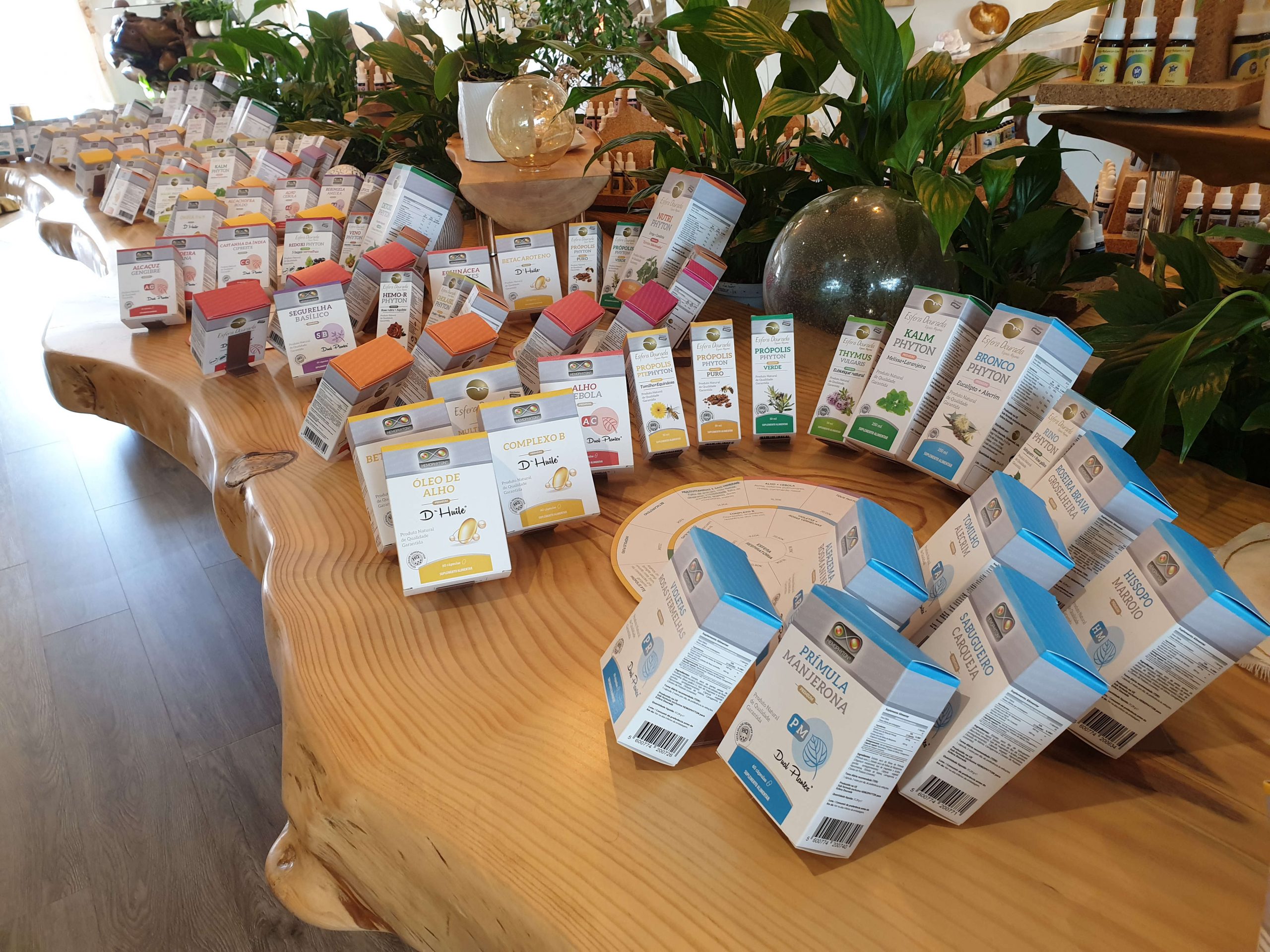
Phytotherapy is a holistic therapeutic method that uses the properties, the active principles, and all the vital energy provided by the beings of the Plant Kingdom to prevent and treat the imbalances which appear in the body of the Human Being and which can trigger diseases, with repercussions on the soul and spirit.
The use of plants for therapeutic purposes is as ancient as the existence of Human Being, and its development and application have gained notoriety in various civilizations around the world over time. It is no coincidence that the World Health Organization recognizes Phytotherapy as one of the Unconventional Therapies.
In Portugal, Phytotherapy was not legally recognized until 2003 as a therapeutic practice, being also taught in the eyes of the State as a license.

Food and Health
The line between the use of plants to nourish the Human Being – fruits, vegetables, grains, and legumes must have a weight greater than 70% in the food wheel – and the prevention and treatment of imbalances, often called diseases, is very narrow. Parsley is an essential aromatic in cooking due to its richness in vitamins and minerals essential for our body, but in herbal medicine, its properties (antioxidant, anti-inflammatory, diuretic, among others) help to strengthen the immune system, to overcome kidney stones, menstrual cramps or, for example, a sauce of parsley under the armpit of a pregnant woman dries up breast milk. Moringa, on the other hand, is the tree chosen by the United Nations to fight hunger in many underdeveloped countries, due to its great richness in nutrients, but its properties and active ingredients make it unique in the world. treatment of anemia, rheumatism, or degenerative diseases.
With each passing day, more and more people are turning to herbal medicine as a means of natural healing. An option justified by the few undesirable effects that they present, because they are natural products, and also by the low risk of dependence that they present. An attractive reality compared to drugs marketed by the pharmaceutical industry which use active ingredients present in plants and, in many cases, are extracted or serve as a mold for molecules produced by chemical synthesis, the final product of which has many contraindications and side effects.
Take the example of a simple headache, fever, or inflammation that can be treated with bark and willow leaves, but is now sold worldwide by the pharmaceutical industry via Aspirin.

Who supervises Phytotherapy
Globally, it is the World Health Organization that has the power to influence policy decisions regarding herbal products. However, herbal medicines, which have an indisputable clinical, pharmaceutical, and economic value, are, in the eyes of regulatory authorities and political structures, in Portugal and in Europe, considered only as food supplements.
Phytotherapeutic products are “Foodstuffs intended to supplement a normal diet…”, specifies the legislation currently in force (Directive 2002/46 / CE).
The European Food Safety Authority is responsible for the regulation and control of food supplements in Europe, while on Portuguese territory, these functions are entrusted to the Food and Economic Safety Authority (ASAE) and the General Directorate of Food and Veterinary Medicine (DGAV).
It is consensual that phytotherapeutic products, that is to say produced from plants, are safe, as they must comply with the recommendations and all the conditions provided for by Portuguese and European legislation, such as Directive 2004/24 / CE of March 31, 2004. It is not by chance that in many European and Asian countries, herbal medicine treatments are covered by the respective health systems.

How to use phytotherapy?
The easiest way to use herbal medicine is to ingest infusions of plants, or their parts, fresh or dried (leaves, stems, roots, bark, seeds), as well as fruits, vegetables, or algae. . Then there are phytotherapeutic products, sold on the market in the form of food supplements, capsules, syrups, elixirs, ointments, tinctures, drops, among others. An example is the HemoPhyton range, distributed exclusively by Esfera Dourada, which is carefully prepared and contains the memory of the heavenly archetypes of plants.
Most plants act on one or more organs and several plants can complement or dissociate. It is therefore essential to never forget that in herbal medicine there are also risks and that all warnings must be strictly observed, such as the recommended daily dose, the condition of the person, pregnant or breastfeeding, if you have hypersensitivity or allergy to some of the constituents of the plant or plants.




